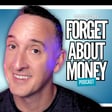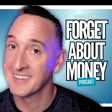
🚀 How to FI: Beginner’s Guide to Reaching Financial Independence with Stephen Baughier! 🌟
🚀 Welcome to "How to FI: Beginner’s Guide to Reaching Financial Independence with Stephen Baughier"! 🌟
Watch this episode on How to FI on YouTube.
🔊 Dive into this enlightening 20-minute talk by Stephen Baughier, hosted at a Salesforce Talent Stacker event. It’s an incredible resource for anyone new to the FI journey or in need of a motivational refresher. This presentation is one of the most accessible and inspiring introductions to the concept of financial independence you'll find today! 💡
🌐 References:
- For more about the Salesforce Course and Events, visit Talent Stacker.
- Attend a CampFI
- Free FI Lessons at Fiology
- Tune into the ChooseFI Podcast for more on financial independence.
📺 If you’re watching this on YouTube and have questions about achieving FI, feel free to ask in the comments. I’m here to support and guide you on your journey to financial independence. 🙌 🎙️ This episode is a feature of the Forget About Money Podcast, hosted by David Baughier, where we delve into the intricacies of financial planning, and what it means to be truly independent.
🗒️ How to FI Summary: In this engaging lecture, Stephen Baughier discusses key strategies for reaching financial independence. Learn about effective income-generating investments, applying the 4% rule, and calculating your FI number. Discover how altering your savings rate can accelerate your journey to FI. The talk underscores the importance of balancing financial success with enjoying life's moments.

